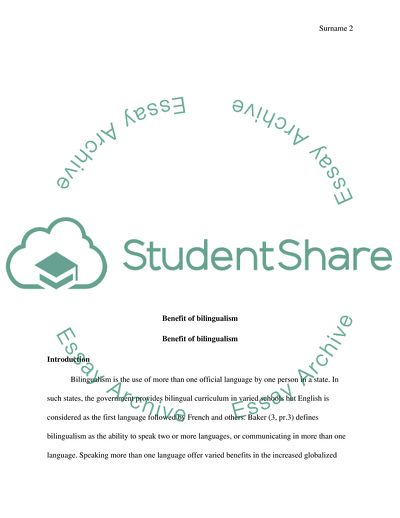Cite this document
(Benefit of Bilingualism Research Paper Example | Topics and Well Written Essays - 1250 words, n.d.)
Benefit of Bilingualism Research Paper Example | Topics and Well Written Essays - 1250 words. https://studentshare.org/education/1795759-benefit-of-bilingualism
Benefit of Bilingualism Research Paper Example | Topics and Well Written Essays - 1250 words. https://studentshare.org/education/1795759-benefit-of-bilingualism
(Benefit of Bilingualism Research Paper Example | Topics and Well Written Essays - 1250 Words)
Benefit of Bilingualism Research Paper Example | Topics and Well Written Essays - 1250 Words. https://studentshare.org/education/1795759-benefit-of-bilingualism.
Benefit of Bilingualism Research Paper Example | Topics and Well Written Essays - 1250 Words. https://studentshare.org/education/1795759-benefit-of-bilingualism.
“Benefit of Bilingualism Research Paper Example | Topics and Well Written Essays - 1250 Words”. https://studentshare.org/education/1795759-benefit-of-bilingualism.


